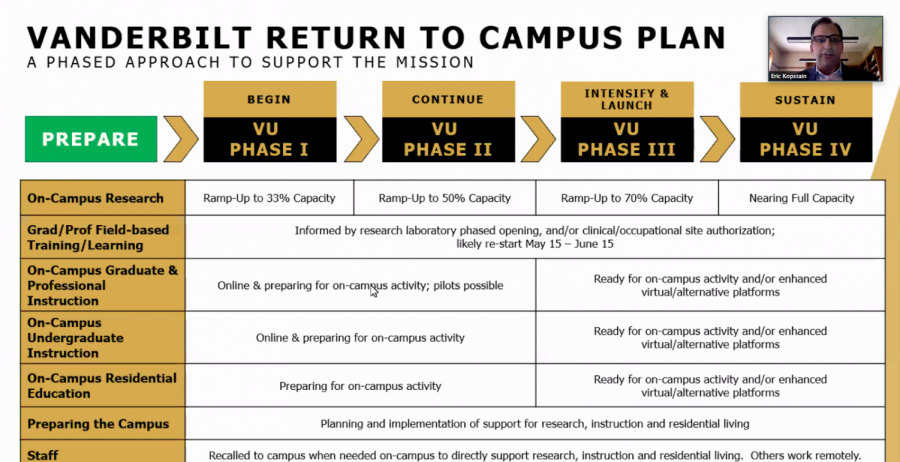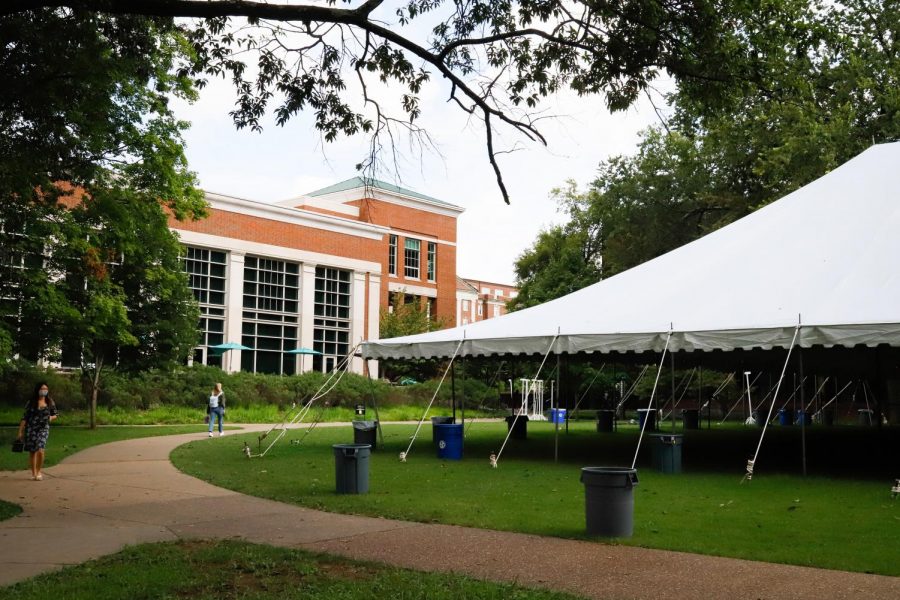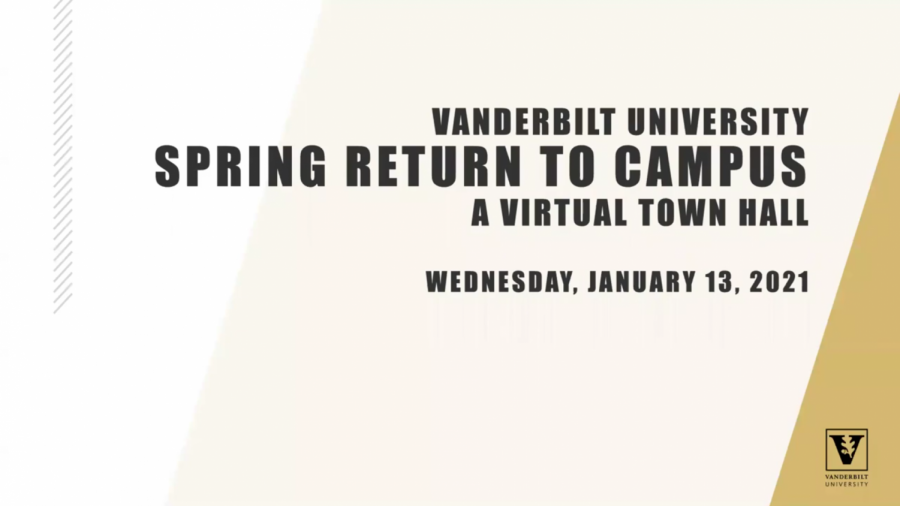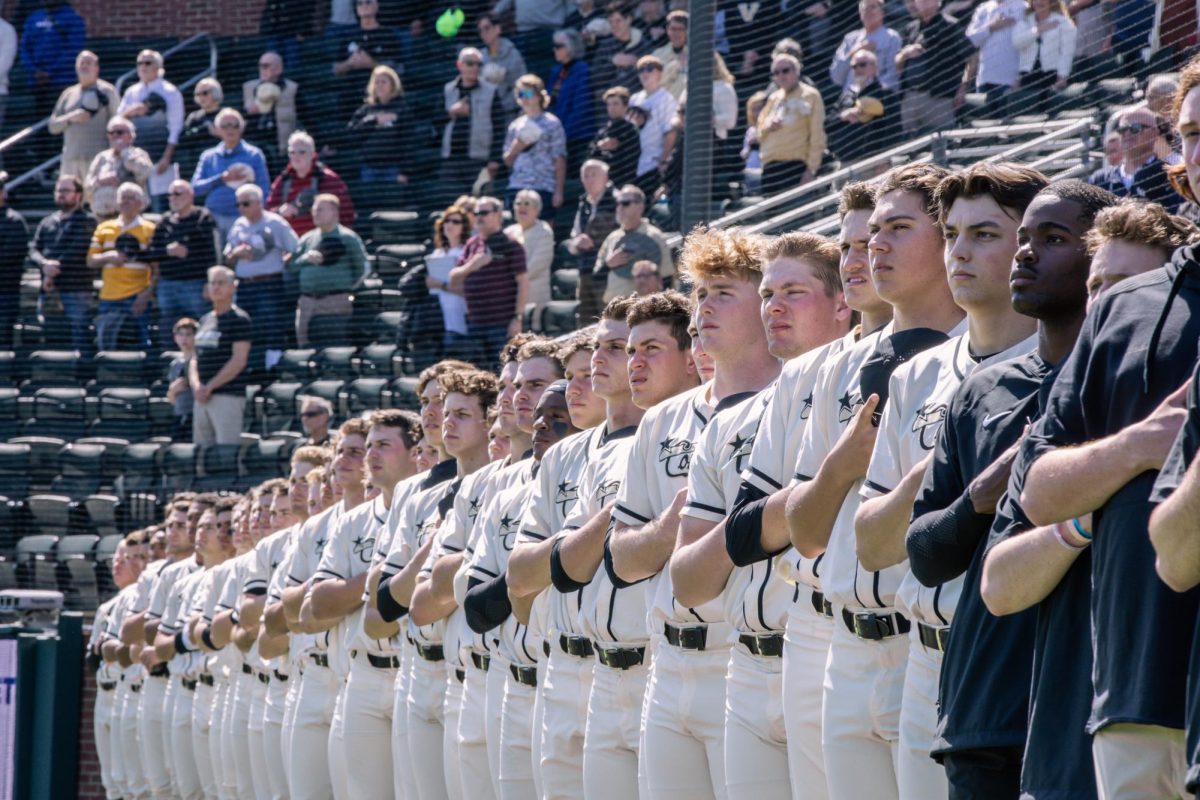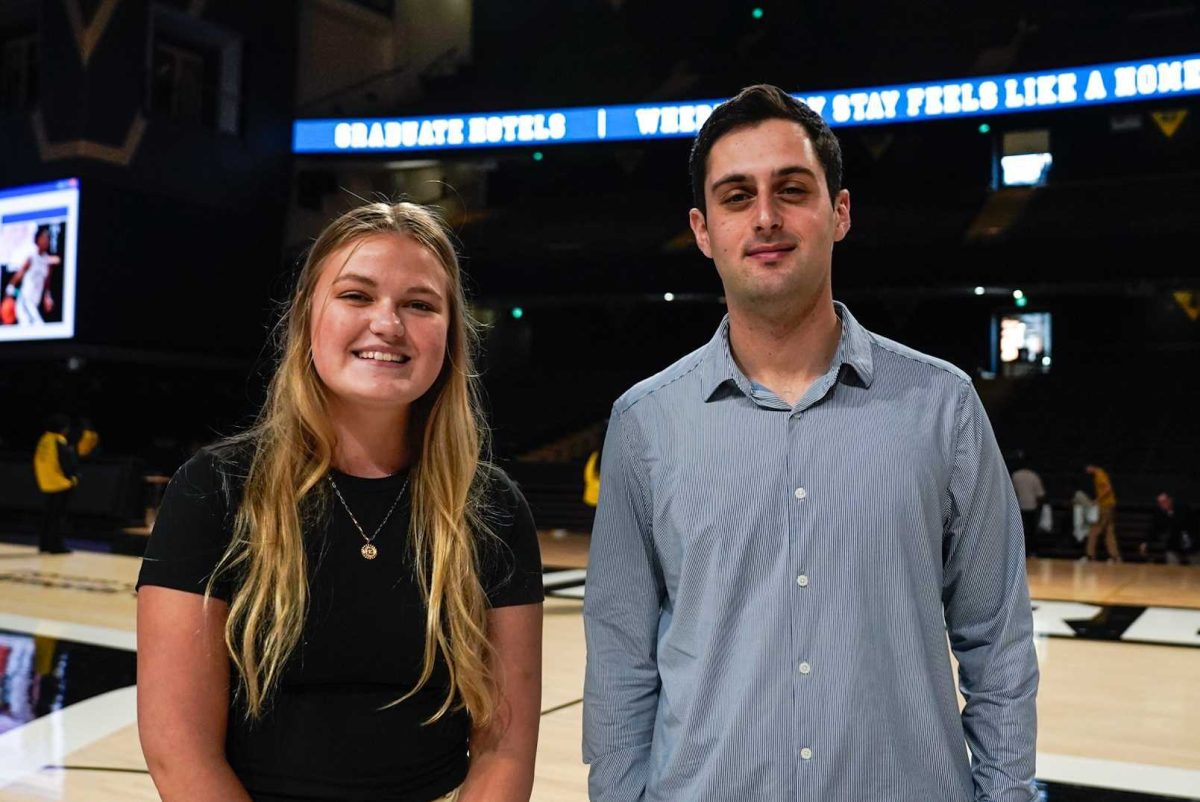During a Zoom town hall Wednesday afternoon, hosted by Interim Chancellor Susan Wente and Vice Chancellor for Administration Eric Kopstain, Kopstain said that Vanderbilt’s hope is to have students back on campus in the fall.
“The most challenging aspect of ramp-up considerations is preparing for the return to campus of undergraduates and the delivery of on-campus instruction to them. Right now we are planning for readiness by the fall,” Kopstain said.
Like Mayor John Cooper’s “Road To Reopening Nashville,” Vanderbilt’s “Return to Campus Plan” has four phases. According to Vanderbilt’s website, Vanderbilt’s reopening timeline may lag behind Nashville’s and any plan to expand operations will be guided by government restrictions, resource availability including PPE for students, faculty and staff and community efforts, among other criteria. If there is a change in COVID-19 transmission metrics and Metro Nashville returns to a prior phase, Vanderbilt may do the same and reimpose restrictions.
Kopstain said Vanderbilt’s plan considers its different qualities and needs in comparison to the city. He noted that Vanderbilt and other universities are not specifically included in the Nashville plan.
“We often say that Vanderbilt is a city within the city of Nashville, given the range of activities that occur on campus,” Kopstain said. “Health and safety of our people is paramount.”
Education and Research
Undergraduate, graduate and professional education will be online this summer and will continue online until at least the third phase of the plan, which states that instruction will then be “ready for on-campus activity and/or enhanced virtual/alternative platforms.”
Classroom capacities and physical distancing needs can be solved, Wente said, by using “non-traditional spaces” like conference rooms as classroom spaces. Wente also said Vanderbilt will maintain its commitment to a fifteen-week semester to enable high-quality education. However, Wente said that the university will consider changes to term start and end dates as well as breaks if necessary, referencing an Inside Higher Ed article about 15 possible fall-semester scenarios. Likewise, hybrid virtual class solutions, longer passing periods between classes and other changes are being considered, per Wente.
For those who are unable to return to campus in the event of in-person classes, Wente said classes will still be delivered virtually if necessary.
Vanderbilt will begin ramping up on-campus research capacity to 33 percent May 18, Wente said, and staff will continue working remotely unless they are needed on campus in direct support of Vanderbilt’s primary mission for on-campus research, instruction and residential living and learning.
Decision-making and Safety Protocols
According to Wente, the university’s decision-making is guided by several committees, including the 37-member Corona Virus Commission (CVC) formed in January. The university had begun proactive planning for a potential recession in summer 2019, Wente said, and has been able to update and revise budgets as a result of the looming recession. The work done by Vanderbilt’s committees now revolves around reopening plans and preparations, per Wente.
“When we turned everything off or shut everything down at the beginning of March, that was like maybe flipping a switch off,” Wente said. “Reopening is much more complex; it is not just flipping a switch back on.”
Vanderbilt is considering national, state and local guidance in addition to the Centers for Disease Control (CDC) and Vanderbilt University Medical Center (VUMC), Wente said.
According to Kopstain, safely reopening campus will involve changing how spaces are used. Campus and building pathways, for instance, will be modified to enable social distancing in high traffic areas, and hand sanitizer and handwashing stations will be placed at building entries. Designated bike and scooter dismount areas may be added, as well as one-way signage for narrower paths on campus, Kopstain said.
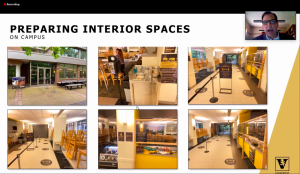
New campus protocols will include temperature monitoring, virus testing, contact tracing, rules for building entry and exit locations, physical distancing, face masks and increased cleaning and disinfection across campus locations. Signage, including floor decals for social distancing, has already been posted in some locations, including Rand Dining Center, where students still on campus are able to pick up grab-and-go meals.
Kopstain said that throughout the phased reopening, the administration will emphasize personal responsibility on campus.

